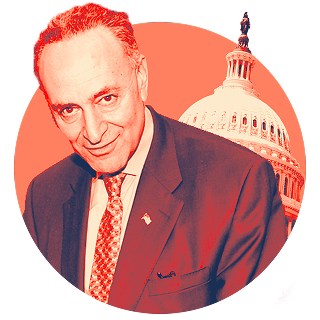
Medicare for All will require $32 trillion in higher taxes over the next decade, according to a report by the Urban Institute and the Commonwealth Fund.
The study analyzes several healthcare reform options including socialized healthcare. The report describes this plan:
Single Payer Enhanced: This plan covers all U.S. residents, including undocumented immigrants, and features a broader set of benefits than Single Payer “Lite,” including adult dental, vision, and hearing care as a well as a home- and community-based long-term services and supports benefit. In addition, there are no cost-sharing requirements. There is no private insurance option
The report lists four cost estimates for this reform ranging from $29.031 trillion to $34.884 trillion over a decade:
- Single-payer enhanced with broad benefits and no cost sharing – $32.015 trillion
- Single-payer enhanced assuming higher provider payments – $34.884 trillion
- Single-payer enhanced assuming state maintenance of efforts – $29.031 trillion
- Single-payer enhanced assuming lower administrative costs – $30.568 trillion
As Joe Biden tweeted, this will require significant tax increases on the middle class:
Let’s put this in perspective: if you eliminate every single solitary soldier, tank, satellite, nuclear weapon, eliminate the Pentagon and it would only pay for 4 months of Medicare for All. 4 months.
Where do the other 8 months come from? Your paycheck.
Biden has pointed out before that Medicare for All will require middle class tax increases. On Sept. 23 Biden said: “It’s going to cost a lot of money and she’s going to raise people’s taxes doing it.”
Despite this, Elizabeth Warren has refused to answer whether Medicare for All will raise taxes on the middle class at least 17 times.
There is no way to come close to paying for Medicare for All without dramatic tax increases on the middle class. The proposal released by Bernie Sanders contains $14 trillion in tax hikes, roughly 40% of the total cost of Medicare for All.
It is also important to note that a significant portion of Sanders’ $14 trillion tax increase relies on eliminating healthcare options for American families ($4.2 trillion) and a 7 percent tax on employers large and small ($3.5 trillion).
Regardless, taxes on “the rich” will not come close to paying for Medicare for All.
For instance, a “wealth tax,” a financial transactions tax, a 10 percent surtax on “the wealthy,” a 70 percent top rate, and doubling the tax rate on capital gains would pay for roughly 20 percent of the cost of Medicare for All according to the best-case scenario estimates by the left.
These estimates assume no negative economic feedback, no changes in behavior, and do not account for any revenue loss from the co-mingling of taxes:
- A wealth tax (2% annual tax on $50 million in wealth, 3% annual tax on $1 billion) – a $2.75 trillion tax increase
- A financial transactions tax (0.1 percent on every transaction) – a $777 billion tax increase
- A 10 percent surtax on the wealthy ($2.9 mil in income and above) — an $800 billion tax increase
- 70 percent top marginal income tax rate – a $353 billion tax increase
- Doubling tax rates on capital gains — a $1.5 trillion tax increase
Total: $6.17 trillion (19 percent to 21 percent of the $32 – $36 trillion cost of “Medicare For All.”)
“Elizabeth Warren won’t admit the obvious. She will impose broad-based tax hikes on the middle class,” said Americans for Tax Reform president Grover Norquist.


